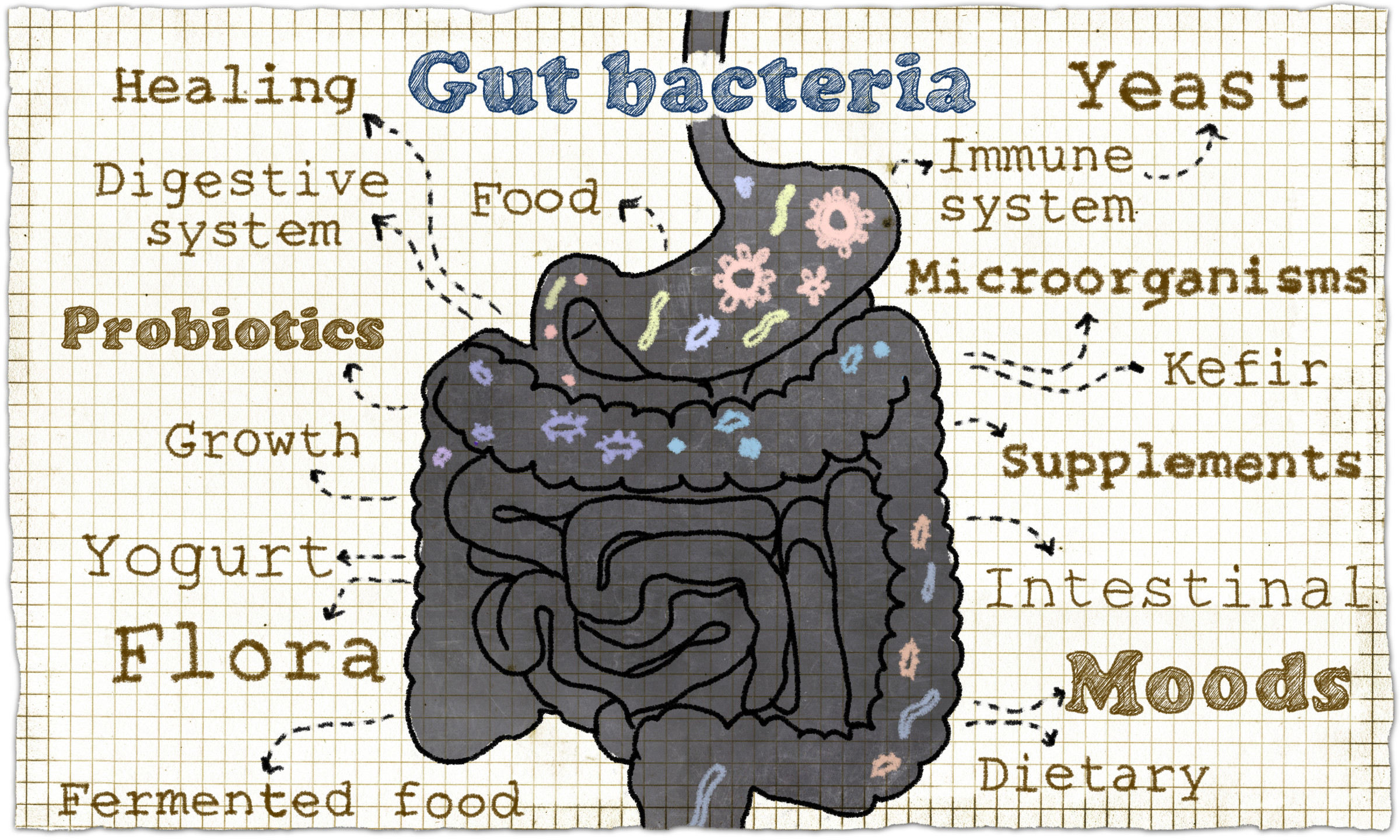The more plants you eat, the clearer your belly thinks
Humans are more than just a body – billions and billions of bacteria live in and on us helping, for example, to nourish our bodies or keep our skin nice and healthy. The collection of beneficial bacteria existing in a given environment is known as a microbiome. There are kilograms of these bacteria living in our gut. And we now know that there is an important link between the brain and the gut – put simply: Having a healthy gut does, to a certain extent, help you think more clearly.
A meta-analysis by the Physicians Committee for Responsible Medicine (PCRM) and the State Ministry of Science, Education Research and Sport of the Slovak Republic has shown that opting for a vegan or vegetarian lifestyle can positively influence your microbiome.
The meta-analysis (analysis that combines the results of multiple studies) evaluated 103 research papers dealing with the effects of a vegetarian/vegan diet compared to a meat-based diet on the intestinal flora. And the result? Compared to meat eaters, vegans and vegetarians usually have a more diverse microbiome. Switching to a vegan or vegetarian diet results within a week to measurable improvements in intestinal flora. This effect is reversed, however, when meat is eaten again. Long-term improvements occur after three months. And, as we all know, biodiversity is a key criterion for a biotope's value. Consuming large quantities of meat – namely processed meat, such as sausages – "breeds", so to speak, certain types of bacteria in the gut that help to metabolize the meat and the fats and preservatives it contains. And it is precisely these bacteria that, in the long run, have an unfavourable effect on the body as a whole. This is because when these bacteria metabolise those elements for which they are specialised, they produce waste products that are detrimental to the body.
The study goes on to show that a diet high in animal protein promotes inflammatory processes and increases the risk of colorectal cancer. Vegetable fats, such as vegetable oils, nuts and seeds increase the production of health-sustaining bacteria in the gut, whereas animal fats are known to increase the risk of cardiovascular disease.
According to the meta-analysis, the body's vitamin status also seems to benefit from a meat-free diet. In the long-run, therefore, a plant-based diet not only contributes to a healthier gut, but also to better health in general.
The work by the PCRM and the State Ministry of Science, Education Research and Sport of the Slovak Republic concludes that switching to a plant-based diet has numerous positive effects on the body. Changing to a meat-free diet can be particularly helpful to those with intestinal problems. However, it is up to the individual to decide which type of diet suits them best. Regardless of how you choose to sustain yourself, if you wish to strengthen and diversify your gut microbiome, it is important to eat a balanced diet and make sure you have a sufficient supply of nutrients.
Here's a few nutritional tips for a healthy microbiome:

- Eat more fiber-rich foods like whole grains, legumes, fruits and vegetables. The classic Bircher muesli is a real microbiome booster.
- Avoid processed foods and refined sugars, which can promote the growth of harmful bacteria.
- Add probiotic foods like yogurt, kefir and fermented vegetables to your diet.
- Avoid antibiotics and other medications that can affect the gut microbiome, or be sure to take probiotics afterwards, as these will help you rebuild your microbiome to full capacity.
- Drinking enough fluids is important – in part because it makes the intestinal contents more motile, thus improving digestion overall.
- Flaxseeds, walnuts and chia seeds are rich in omega-3s and help reduce inflammation in the gut (which you don't necessarily feel, even if it's there).
- Foods high in saturated fat – red meat, high-fat dairy products – tend not to be good for the microbiome. On the other hand, live, fermented foods such as sauerkraut and kimchi, which in a sense bring their own microbiome with them in their raw state and unite it with yours, are good.
- Vitamin D is important for healthy gut function. If you live a consistent vegan lifestyle and can't get out in the sun often, you should take a supplement.
- Tobacco and alcohol are stimulants that also have an unfavorable effect on the microbiome.
Source: Here you can find the study.
THIS ARTICLE MIGHT ALSO INTEREST YOU:

